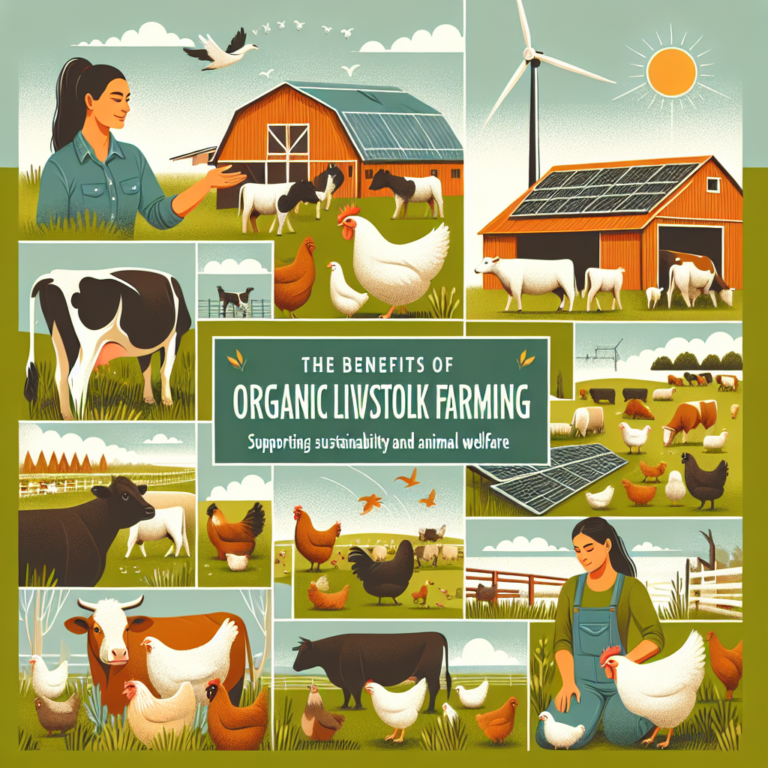Organic livestock farming is gaining popularity as consumers become more conscious of the environmental and ethical implications of food production. This method of farming utilizes sustainable practices that not only benefit the environment but also prioritize the health and well-being of the animals involved.
One of the primary benefits of organic livestock farming is its commitment to sustainability. Unlike conventional farming methods, organic livestock farming does not rely on synthetic chemicals or genetically modified organisms. This helps reduce the overall carbon footprint of the operation and minimizes pollution of soil, air, and water.
Additionally, organic livestock farming promotes biodiversity by incorporating natural ecosystems into the farm. This can include practices such as rotational grazing, where animals are moved between different pastures to prevent overgrazing and promote healthy soil. By working in harmony with the natural environment, organic farmers are able to maintain the ecological balance of the land and support local flora and fauna.
Another major benefit of organic livestock farming is the emphasis on animal welfare. Organic standards require that animals have access to outdoor space, clean water, and a balanced diet free from artificial additives and antibiotics. This means that animals are able to exhibit natural behaviors and lead comfortable, stress-free lives.
Furthermore, organic livestock farming prohibits the use of growth hormones and routine antibiotics, which are commonly used in conventional farming to promote rapid growth and prevent disease. By eliminating these practices, organic farmers are able to produce higher quality meat, dairy, and eggs that are free from harmful residues and potentially harmful health effects.
In terms of consumer health, organic livestock products are often considered to be more nutritious than their conventional counterparts. Studies have shown that organic meat and dairy products contain higher levels of beneficial nutrients such as omega-3 fatty acids and antioxidants. Additionally, organic livestock products are less likely to contain harmful contaminants such as pesticides, antibiotics, and synthetic hormones.
Overall, the benefits of organic livestock farming are clear: this method of farming supports sustainability, promotes animal welfare, and produces high-quality, nutrient-dense food for consumers. By choosing organic livestock products, consumers can support farmers who are committed to ethical and environmentally-friendly practices, while also enjoying the health benefits of organic food.










